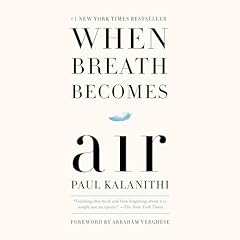
The Good Death
An Exploration of Dying in America
No se pudo agregar al carrito
Add to Cart failed.
Error al Agregar a Lista de Deseos.
Error al eliminar de la lista de deseos.
Error al añadir a tu biblioteca
Error al seguir el podcast
Error al dejar de seguir el podcast
 Exclusivo para miembros Prime: ¿Nuevo en Audible? Obtén 2 audiolibros gratis con tu prueba.
Exclusivo para miembros Prime: ¿Nuevo en Audible? Obtén 2 audiolibros gratis con tu prueba.Compra ahora por $19.10
-
Narrado por:
-
Suzanne Toren
-
De:
-
Ann Neumann
Following the death of her father, journalist and hospice volunteer Ann Neumann sets out to examine what it means to die well in the United States. When Ann Neumann's father was diagnosed with non-Hodgkin's lymphoma, she left her job and moved back to her hometown of Lancaster, Pennsylvania. She became his full-time caregiver - cooking, cleaning, and administering medications. When her father died, she was undone by the experience, by grief and the visceral quality of dying. Neumann struggled to put her life back in order and found herself haunted by a question: Was her father's death a good death?
The way we talk about dying and the way we actually die are two very different things, she discovered, and many of us are shielded from what death actually looks like. To gain a better understanding, Neumann became a hospice volunteer and set out to discover what a good death is today. She attended conferences, academic lectures, and grief sessions in church basements. She went to Montana to talk with the attorney who successfully argued for the legalization of aid in dying, and to Scranton, Pennsylvania, to listen to "pro-life" groups who believe the removal of feeding tubes from some patients is tantamount to murder. Above all, she listened to the stories of those who were close to death.
What Neumann found is that death in contemporary America is much more complicated than we think. Medical technologies and increased life expectancies have changed the very definition of medical death. And although death is our common fate, it is also a divisive issue that we all experience differently. What constitutes a good death is unique to each of us, depending on our age, race, economic status, culture, and beliefs. What's more, differing concepts of choice, autonomy, and consent make death a contested landscape, governed by social, medical, legal, and religious systems.
In these words, Neumann brings us intimate portraits of the nurses, patients, bishops, bioethicists, and activists who are shaping the way we die. The Good Death presents a fearless examination of how we approach death and how those of us close to dying loved ones live in death's wake.
©2016 Ann Neumann (P)2016 Audible, Inc.Los oyentes también disfrutaron:




















Featured Article: A Future Corpse's Guide to Death Acceptance
Confronting death does not necessitate a spiral into despondency. Instead we may come a realization that, in acknowledging and accepting this fate, we paradoxically lead fuller and more emotionally present lives. In this list, scholars, physicians, journalists, philosophers, and death professionals share their stories, perspectives, and advice, offering a glimpse into how we can prepare for the end with grace, heart, and humor.
Las personas que vieron esto también vieron:


Fascinating and Insightful
Se ha producido un error. Vuelve a intentarlo dentro de unos minutos.
great book
Se ha producido un error. Vuelve a intentarlo dentro de unos minutos.
Should Be Titled "Busted Social Systems"
Se ha producido un error. Vuelve a intentarlo dentro de unos minutos.
A Learning Experience
Se ha producido un error. Vuelve a intentarlo dentro de unos minutos.
Wonderful Book!
Se ha producido un error. Vuelve a intentarlo dentro de unos minutos.



